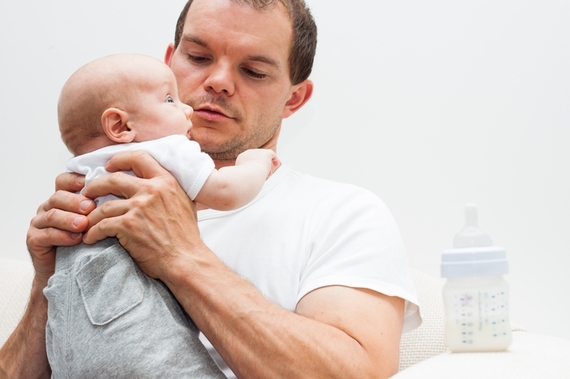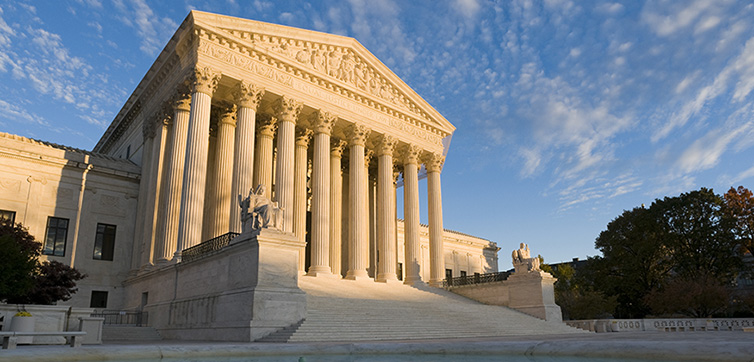This weekend millions of Americans will happily celebrate the role that fathers play in their families. For some families, though — specifically those in which dad’s role was not freely assumed, but legally mandated — Father’s Day can be an emotionally complicated occasion. And that somewhat messy reality raises a question that is worth examining today as the very definition of parents and families continues to undergo legal and social transformation.
Women’s rights advocates have long struggled for motherhood to be a voluntary condition, and not one imposed by nature or culture. In places where women and girls have access to affordable and safe contraception and abortion services, and where there are programs to assist mothers in distress find foster or adoptive parents, voluntary motherhood is basically a reality. In many states, infant safe haven laws allow a birth mother to walk away from her newborn baby if she leaves it unharmed at a designated facility.
If a man accidentally conceives a child with a woman, and does not want to raise the child with her, what are his choices? Surprisingly, he has few options in the United States. He can urge her to seek an abortion, but ultimately that decision is hers to make. Should she decide to continue the pregnancy and raise the child, and should she or our government attempt to establish him as the legal father, he can be stuck with years of child support payments.
Do men now have less reproductive autonomy than women? Should men have more control over when and how they become parents, as many women now do?
The political philosopher Elizabeth Brake has argued that our policies should give men who accidentally impregnate a woman more options, and that feminists should oppose policies that make fatherhood compulsory. In a 2005 article in the Journal of Applied Philosophy she wrote, “if women’s partial responsibility for pregnancy does not obligate them to support a fetus, then men’s partial responsibility for pregnancy does not obligate them to support a resulting child.” At most, according to Brake, men should be responsible for helping with the medical expenses and other costs of a pregnancy for which they are partly responsible.
Few feminists, including Brake, would grant men the right to coerce a woman to have (or not to have) an abortion, because they recognize a woman’s right to control her own body. However, if a woman decides to give birth to a child without securing the biological father’s consent to raise a child with her, some scholars and policy makers question whether he should be assigned legal paternity.
Historically, it was important for women to have husbands who acknowledged paternity for their children, as children born to unmarried parents were deemed “illegitimate” and had fewer rights than children born to married parents. Today, the marital status of a child’s parents affects much less that child’s future. Nevertheless, having two legal parents is a significant advantage for a child, and establishing legal paternity for both married and unmarried fathers is a complicated but necessary part of our public policies.
As more children are born to unmarried parents, the social and legal preference for awarding paternity to the mother’s husband becomes more outdated. When there is a dispute about fatherhood rights and obligations, the courts can use different criteria for assigning legal paternity. These include a man’s marital or marriage-like relationship with the child’s mother, his caregiving and support role in the child’s life, and his biological relationship to the child.
The legal scholar Jane Murphy has argued that a new definition of fatherhood is emerging in our laws and court decisions which privileges a man’s biological tie to a child over other criteria. In a 2005 article in the Notre Dame Law Review, Murphy wrote about paternity “disestablishment” cases in which men who have assumed the father role in a child’s life seek genetic testing to avoid the obligations of legal fatherhood, typically when they break up with the child’s mother. Her research shows that replacing the limited “mother’s husband” conception of fatherhood with a narrow biologically based one still leaves many children legally fatherless.
Furthermore, Murphy explains how the new definition of ‘fatherhood’ is driven by the government’s goal of collecting child support from men whose biological offspring are in the welfare system, as well as lawsuits from men aiming to avoid financial responsibility for their dependents. Murphy, then, reasonably proposes that judges and legislators “recognize multiple bases for legal fatherhood” and be guided by “the traditional goals of family law — protecting children and preserving family stability.” Murphy argues for revising paternity establishment policies so that fewer men become legal fathers involuntarily or without understanding the legal responsibilities they are assuming.
Murphy’s proposed reforms would apply to men who have different kinds of ties to a child. They would protect a naïve man who, in a moment of exuberance with a girlfriend, allows his name to be put on a birth certificate, and a man whose only tie to a child is biological. Coercing legal paternity in such cases leads to painful “disestablishment” battles that are unlikely to be in the best interest of the child or promote stable family relationships. Murphy discusses cases in which legal fathers resort to violence or threats of violence against a mother and her children when child support orders are enforced against them.




